- News
- Reviews
- Bikes
- Accessories
- Accessories - misc
- Computer mounts
- Bags
- Bar ends
- Bike bags & cases
- Bottle cages
- Bottles
- Cameras
- Car racks
- Child seats
- Computers
- Glasses
- GPS units
- Helmets
- Lights - front
- Lights - rear
- Lights - sets
- Locks
- Mirrors
- Mudguards
- Racks
- Pumps & CO2 inflators
- Puncture kits
- Reflectives
- Smart watches
- Stands and racks
- Trailers
- Clothing
- Components
- Bar tape & grips
- Bottom brackets
- Brake & gear cables
- Brake & STI levers
- Brake pads & spares
- Brakes
- Cassettes & freewheels
- Chains
- Chainsets & chainrings
- Derailleurs - front
- Derailleurs - rear
- Forks
- Gear levers & shifters
- Groupsets
- Handlebars & extensions
- Headsets
- Hubs
- Inner tubes
- Pedals
- Quick releases & skewers
- Saddles
- Seatposts
- Stems
- Wheels
- Tyres
- Health, fitness and nutrition
- Tools and workshop
- Miscellaneous
- Cross country mountain bikes
- Tubeless valves
- Buyers Guides
- Features
- Forum
- Recommends
- Podcast
TECH NEWS
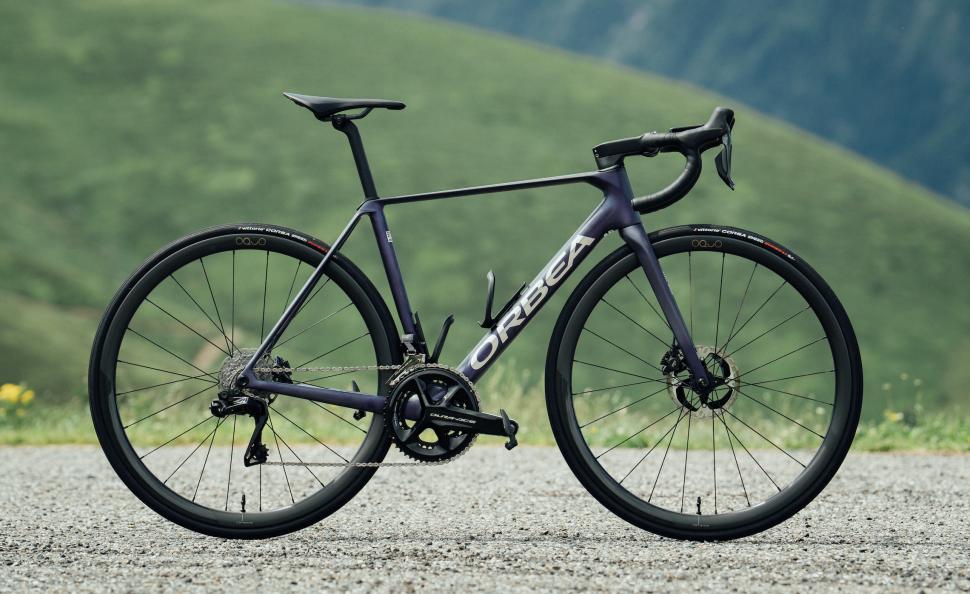 2023 Orbea Orca
2023 Orbea Orca Orbea unveils updated Orca lightweight climbing bike that weighs just 6.7kg
Orbea has revealed an updated version of its Orca road bike, available in the top-of-the-range OMX model or the OMR, the latter of which is claimed to be around 300g heavier. The Orca is designed for climbers and is customisable through MyO, available in 13 different builds.
The previous model of the Orca OMX was aimed at riders wanting one bike that does it all, while the new Orca is claimed to be the best bike for climbing and referred to as "the ultimate climbing machine" by the Spanish brand.
Orbea says, "the Orca is around 3W faster than an aero bike, for an average rider, on a 5% slope, and around 6W faster on a 10% slope."
The Orca OMX has claimed weight of 6.7kg for a full bike, and the frame is just 750g (size 53cm) and 360g for the fork, while the OMR frame and fork are claimed to be 330g heavier, weighing 1,030g and 410g respectively.
To keep the weight of the frame down, Orca says it has used 90 fewer carbon pieces for the OMX due to using larger pieces of carbon fibre, which results in fewer overlaps.
Orbea frames are painted at its Basque Country HQ, which allows for more control of the process according to Orbea. The brand claims that the paint weighs around 15g and the frame hardware around 20g.
Furthermore, Orbea says it has prevented excess epoxy from gathering on edges or corners, claiming to save grams further.
> How to read a bike geometry table
The Orca's geometry remains largely unchanged, but one modification is the shorter chainstays and consequently shorter wheelbase, which Orbea says is to increase the responsiveness and agility of the Orca that climbers demand.
A key feature is the 'Powerspine' frame design, whereby the lower spine of the frame handles the majority of load. The headtube, downtube and chainstays resist twisting, transmitting power to the rear wheel, and Orbea claims that this design helps save weight elsewhere without compromising stiffness.
Not forgetting aero gains, Orbea states that whenever aerodynamics didn't compromise weight, they chose the most aero solution. For example, internal cable routing and the new seat clamp mechanism.
The frame has wide clearance fitting tyres up to 32mm and despite the fork being designed to minimise weight, the shape is said to help reduce drag at the same time.
The new Orca is complete with Orbea's in-house OC components and OQUO wheels, allowing Orbea to design the complete bike and offering better integration.
The bike features the RP10 stem, which is said to be one the lightest on the market, and HP11 handlebar with a claimed weight of 190g. Orbea says, "the new handlebars offer the most modern ergonomics, and Orbea will be one of the first brands with flared road bars across the full range."
You don't have to use Orbea's handlebars though, and if you'd rather use handlebars from Vision or Deda, Orbea has an adaptor to fit these.
> Orbea’s Oquo brand launches its first road and gravel wheel range using ‘mini hook’ system
Orbea’s Oquo brand recently unveiled its first road wheels, which are aimed at both high-performance and gravel/endurance riding, and the Orca uses these new Oquo wheels.
They come in carbon or aluminium with three different levels: LTD, Team and Pro, and there are also three different rim depths: 35, 45 and 57mm. The RP35-LTD wheelset is said to weigh 1380g.
Orbea suggests tyre widths from 25mm to 35mm for the 21mm internal width.
The Orca is available in two frame options and seven different sizes: 47, 49, 51, 53, 55, 57, and 60cm.
The OMR frame comes in three different colours, while the OMX frame comes in two different colours. Orbea's MyO feature allows you to personalise the bikes further, with the option of choosing more aerodynamic wheels and handlebars.
Emily is our track and road racing specialist, having represented Great Britain at the World and European Track Championships. With a National Title up her sleeve, Emily has just completed her Master’s in Sports Psychology at Loughborough University where she raced for Elite Development Team, Loughborough Lightning.
Emily is our go-to for all things training and when not riding or racing bikes, you can find her online shopping or booking flights…the rest of the office is now considering painting their nails to see if that’s the secret to going fast…
Latest Comments
- GMBasix 2 sec ago
This is at the heart of the problem. The language is telling. "We will stop working with them" treats riders like an equal partner with uninhibited...
- mdavidford 5 min 53 sec ago
Doesn't appear to be anything to do with money in this case - rather it's a legal dodge. From what I can understand, the government, in it's wisdom...
- chrisonabike 43 min 53 sec ago
A bit of a tangled web here. It may be safer driving * but people who cycle more and drive less can enjoy much better health (inc. just "feeling...
- Smoggysteve 37 min 23 sec ago
The issues here are mostly caused by one single over-riding factor. Most people (by which I mean the average persons build, shape, fitness levels)...
- Surreyrider 1 hour 19 min ago
How on earth can you mark a winter tyre down for being "not as grippy or as fast as a summer tyre"? That's ridiculous logic.
- andystow 2 hours 15 min ago
I'm 53, and gained most of my cycling fitness after age 43. I've never done an FTP test nor used a power meter, but based on occasionally asking...
- ubercurmudgeon 2 hours 16 min ago
I doubt you'll need to worry about facing that particular dilemma: by the time you find yourself in need of a pump, it'll probably have fallen off...
- mdavidford 2 hours 34 min ago
Except that presumed liability is usually a matter of civil liability, so you wouldn't be prosecuted as a result of it (though you may be held...
- Rendel Harris 3 hours 23 min ago
Well, I finally got some response from my repeated requests as to what was happening with the alleged database and was supplied with a link which...

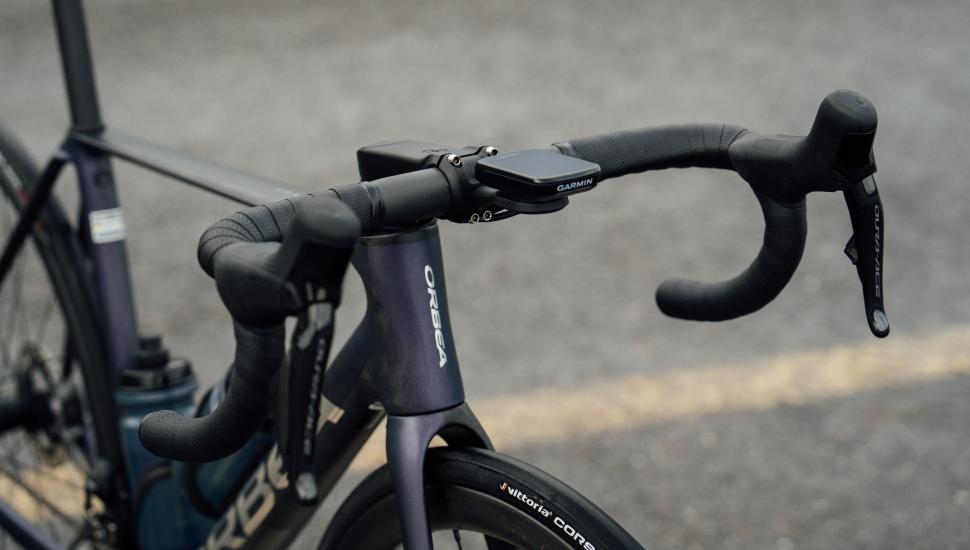
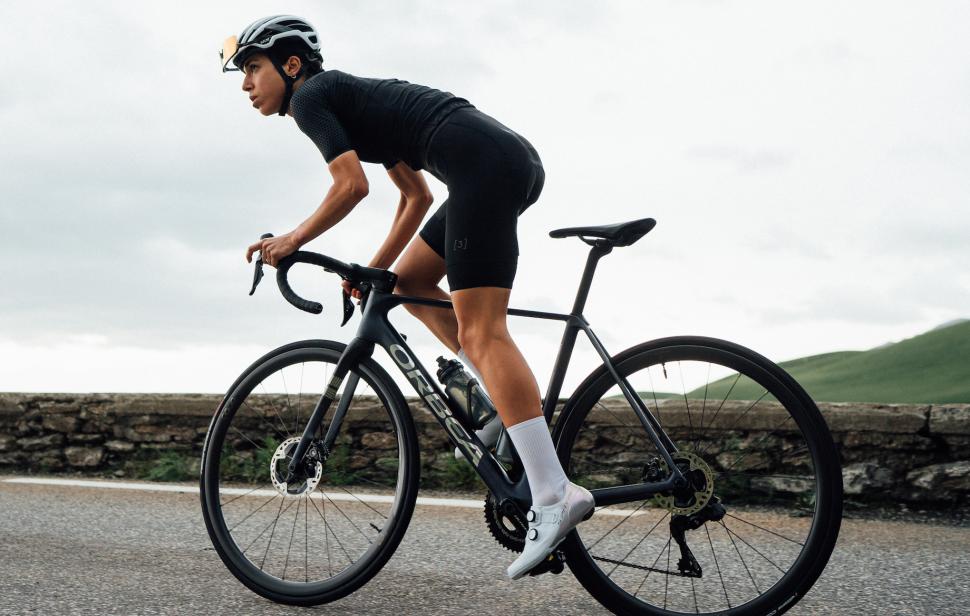
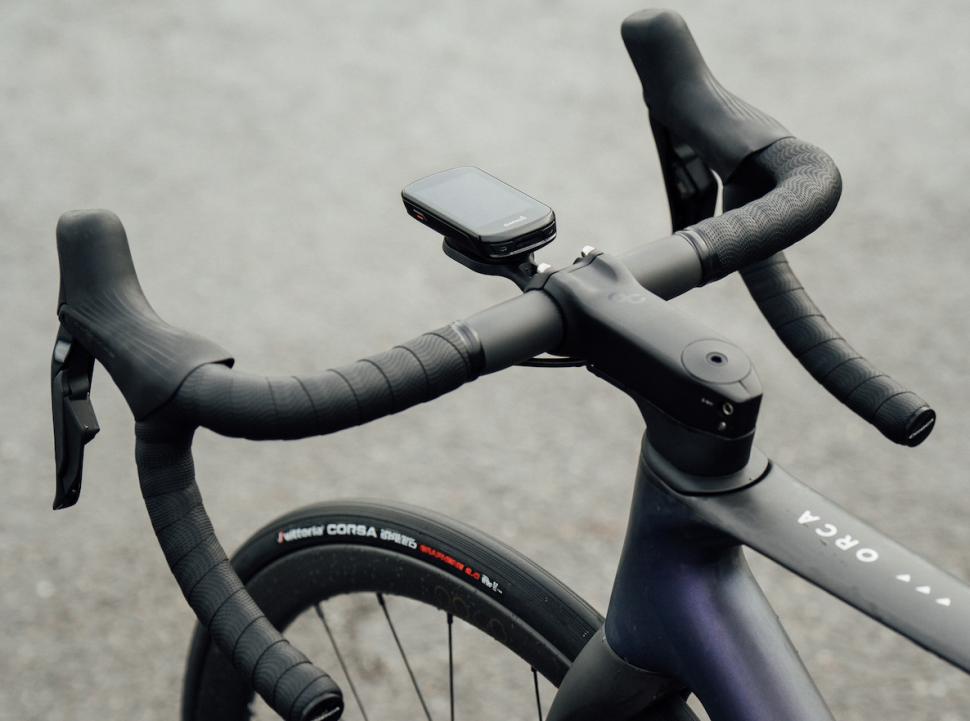

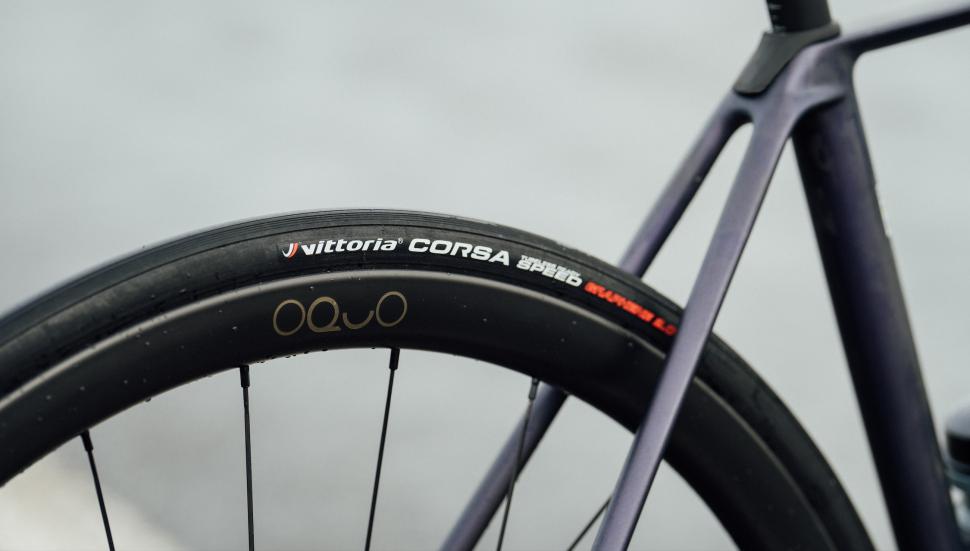
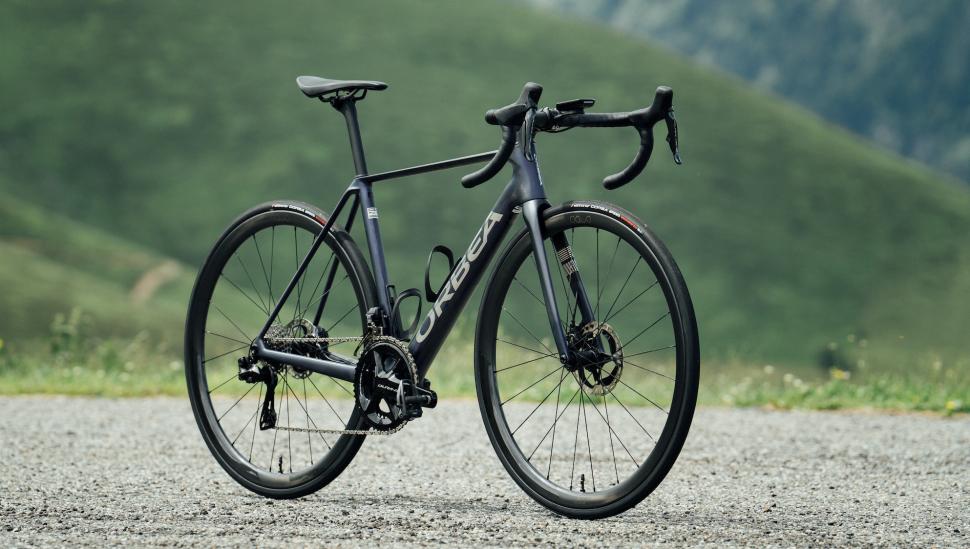
Add new comment
7 comments
"offering the best climbing performance possible" - If you're only aiming at that single criterion, then a bike with rim brakes would be lighter and better. Obviously, disc brakes can be good/better in other ways, but they do not offer the "best climbing performance possible". I'd appreciate if the road.cc journalists offered some critical analysis of brand's marketing blurb rather than just offering an advertising platform.
6.7kg is the lightest UCI rules allow, no? So in that context I guess it is the best climbing performance possible if you are judging it purely by the weight of the bike.
6.8kg is the weight limit. I'm unsure, but presume not, that the 6.7kg quoted weight is without bottle cages and pedals so it will be 7kg with those, so it's 300g overweight to be the ultimate uci compliant climbing bike. Woods factor Oates vam on the other hand was 6.8kg at this years tour, so that would be a more "offering the best climbing performance possible" bike to me than this one
Well it's marketing blurb, there's no need to 'analyse' it. And this is only an announcement, not a review. CW has published a first ride review from the launch in the Pyrenees.
If you prefer rim brakes then look elsewhere, the main brands are only interested in disc brakes now, whether you like it or not.
I love the look of these bikes but am disappointed to see that they are only available with electronic groupsets, no mechanical.
I never said or even implied that I prefer rim brakes. My criticism was only about the misleading marketing claims and the lack of good "journalism" vs simple "reporting", not about the brake type.
I actually ride disc brakes myself, mainly due to the clearance for bigger tires and/or mudguards (but I choose Paul Klamper mechanical disc brakes to avoid messing with hydraulics). I also know that weight is a VERY minor factor in overall bike performance that shouldn't influence most decisions, so I'm happy to have discs even on my climbing bike because I look at more than one criterion.
The marketing claim was about optimizing that one unimportant criterion, which this bike fails to do due to the brake type. That's my only point.
Also, I doubt that any of the people who made a response about the UCI's weight limit being the ultimate goal need to worry about that arbitrary number.
6W faster? So same speed for 6less W or? Or same W in for some random number of seconds up a climb or 0.x mph faster up a climb
Yes